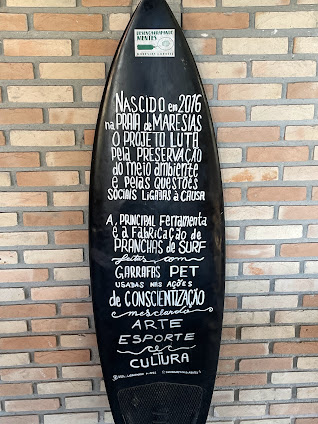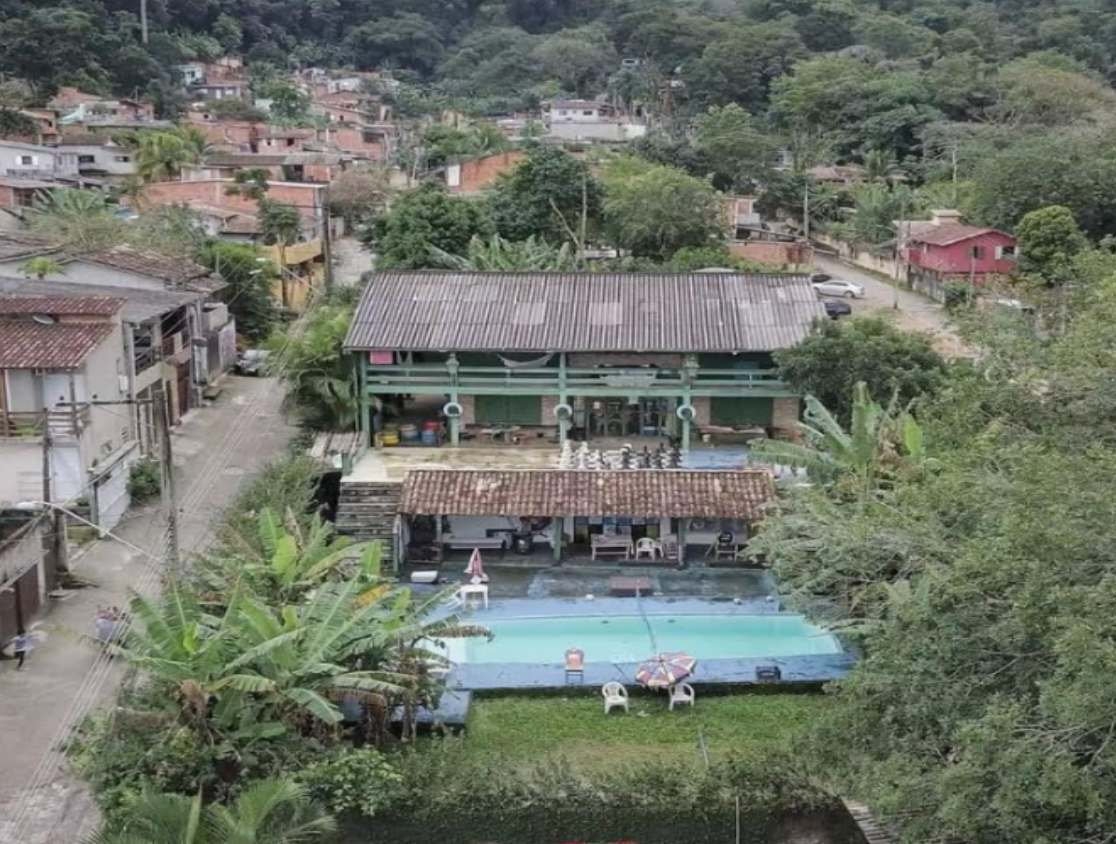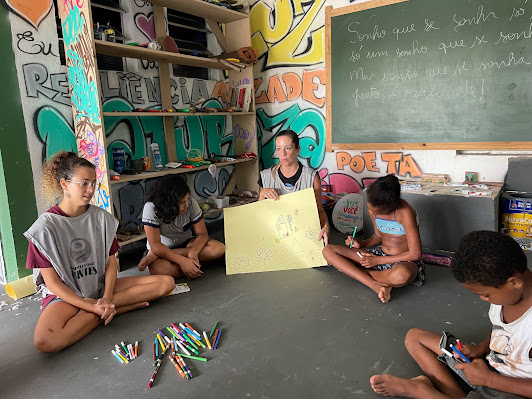Brazil A-Term - Day #1: Introduction and Travel by Fabricio Guerra
The Beginning of the 2022 Brazil A-Term: Intro and Travel Day
By Fabrício Guerra
Personal Introduction
And so it begins; finally the A-Term that I had been planning since before pandemic times is coming to life. Although its current form and structure varies differently from the original version, it's looking like this will be an incredible A-Term. If you're reading this, there's a high chance that you have no idea what the makeup of this A-Term is. Because of this, I've decided to use this first blog as a way of introducing and explaining the A-Term to my audience. I'm not going to be able to tell the entire story (I wouldn't want to drown you in pages of Fabricio-esque story telling) but I am going to give some key information. We've come a long way from where we originally started. Our plans and motives have evolved so much so that we are coming closer and closer to making this project nto an actual participative A-Term (and maybe even J-Term) for other students, and that is the ultimate end goal of our actions. So... yeah, let's get this show on the road!
Broader Background
This A-Term is happening in the small town of Maresias, located on Maresias Beach which is part of the city of São Sebastião, one of the oldest cities in the New World. For the longest time Maresias was just a fishing village, but in the 1980s people started buying properties and building beach houses as a getaway from the city life in São Paulo. It really is a beautiful place, located in a valley in the very mountainous Atlantic Forest, so when word started getting around that this was a good place to build your beach house, people came in extremely quickly. By the 1990s, the entire Maresias coastline was packed with massive millionaire mansions and behind them lodges were being built for those who couldn't afford to build a house. Starting in the 1950s but really kicking off in the 1990s and 2000s, the extreme urbanization of the state of São Paulo was underway. The state became a working class blackhole, where people around the country who lived in impoverished areas flocked in search of work. In Maresias there was a big demand for workers in the lodges and in the mansions, so as more people came they needed more housing and more housing meant more infrastructure to be built which meant more people for more jobs and the cycle began to snowball.
As the demand for workers was still rising and families were beginning to form, a big geographical issue with Maresias was realized: there was not enough space to sustain the demand. As I said earlier, Maresias is located in a valley, but that valley closes off in the back, limiting the amount of residencial space. When the companies couldn't keep up, the workers coming in started to do something that is prevalent throught the urban areas of Brazil, they began to cut down trees on the mountainside and build their own houses on top of each other, effectively creating slums (also known here as Favelas). Here comes one of the most important parts of this entire A-Term: since those favelas were not connected to the infrastructure, all of their sewage was dumped into the Maresias River, which, due to the rivers stagnant flow, led to some atrocious pollution. In the mid 2010s, poverty started to become a problem in Maresias. All of this was culminating in the formation of a broken generation of impoverished children, and so with all of this built up one man stood up to do something about it.
In 2016, a decade-long resident of Maresias created a non-profit organization to combat the growing pollution and the generation of secluded, emotionally troubled children. His name was Thiago Oliveira, and the name of his organization was Desengarrafando Mentes, which translates to English as Unbottling Minds. The goal of his organization is to "fight for the preservation of the environment and for the social issues connected with the cause." After the investment boom of the 1980s and 1990s, the culture surrounding Maresias shifted from tourist getaway to international surfing destination in the 2010s. This was due to the rise of Gabriel Medina, who is a Maresias native and won the Surfing World Championship twice. So, using this culture shift, Thiago connected culture with environmentalism by building surfboards out of recycled 2L and 1.5L plastic bottles and teaching the children how to surf with them. This brought the children into a new light of the place they lived in, whilst at the same time teaching them about how important it is to preserve the environment.
When we first heard of Unbottling Minds, it was in 2019 when the organization was still very small. It included Thiago and some of his friends, and they connected with the children mostly by going to the two public schools of the town. When he enlightened us on his mission, we thought that this would be a brilliant idea for an A-Term, and so we planned to have an individual A-Term for the 2020 roster. However, we all know what happened in March of 2020, a date that lives in infamy. Thus, the pandemic post-poned our plans for an active project, but it didn't crush our hopes and dreams entirely. Even throughout the pandemic we engaged with Unbottling Minds as much as we could (some could recall that I spent nearly 7 months stuck in Brazil, so that made it easier to collaborate with them). Since then, Unbottling Minds has grown incredibly. Now there is a Headquarters with daily activities. The organization no longer just helps children, but also adults and elderly with subjects like alphabetization and literacy. Now that we have finally built another A-Term, I am very excited to go on and build a foundation for a future participative
Travel
So, now that most of the background has been explained, let me talk about how the first day of the A-Term went. Monday, March 21st was dedicated as a travel day. The weekend was quite an exhausting one. We had multiple long drives and flights coming back from our Spring Break trip to the amazon, and now the long, 3.5 hour journey to Maresias lay ahead. It was a dark, overcast, and rainy day, and I sat in the backseat with all the weight of fatigue on my shoulders. I knew that when I got there the weather would not have changed and that a nap was definitely on the menu. It is important to know that São Paulo lies on a plateau much higher than sea level, around 2500ft, which is interesting considering its proximity to the ocean. On the way down the plateau, there are some beautiful views of the landscape, and from certain places you can even see the port city of Santos. We passed through Cubatão, which in the 1970s was one of the most polluted places on Earth, and then when we got closer to the ocean our drive to the beach began.
I have been on this drive about a quadrillion times. When I was a toddler and still living in Brazil, every weekend the family would come here to getaway from the city life (as mentioned earlier), so the drive always seems like a significant event to me. When we got into the city limits of São Sebastião, we drove past all the familiar beaches of the northeastern Paulista coast including Juquehy, Cambury, Baleia, and Boiçucanga, until finally we arrived at Maresias. When I got out of the car I was greeted by the wonderful breath of fresh air (which is really refreshing -- the air quality in São Paulo is... substandard at most). Finally I am here again, finally I can start once more my A-Term journey. This will be my final one, and it will be the best one.







Comments
Post a Comment